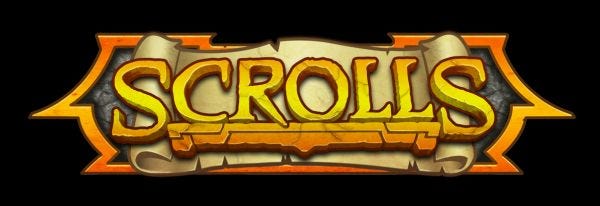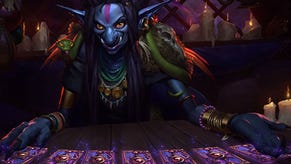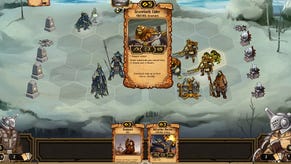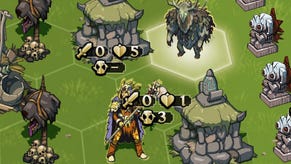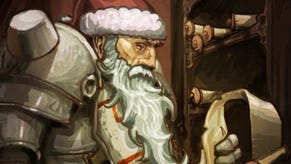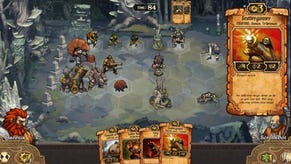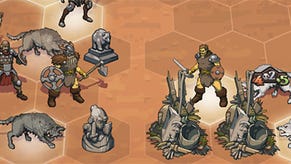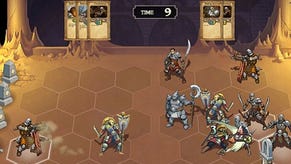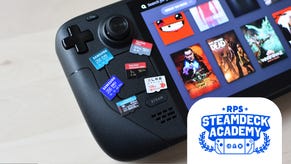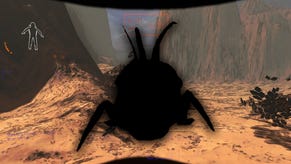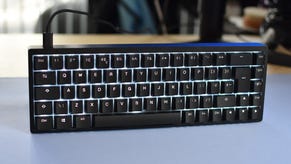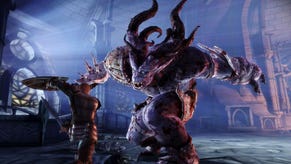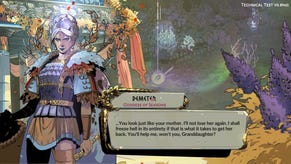The Name Game: Inside The "Scrolls" Case
Scrolling The Internet
As you are likely already aware, Minecraft-makers Mojang are currently embroiled in the first stage of legal proceedings brought about by The Elder Scrolls-makers Bethesda, in a dispute over whether the name "Scrolls" can be used for the title of the second game. Keen to find out a little more about what it all means, I had a chat with Alex Chapman, an intellectual property lawyer at Sheridans Solicitors in London, who is advising Mojang on the case. Read on below for some elucidation into what's going on, and what to watch out for when you are naming your own game.
RPS: What's really at stake here and why are Bethesda pursuing this action?
Chapman: I can't say why Bethesda is pursuing this action except that it would appear that it is trying to use its rights in the name "The Elder Scrolls" to have an effective monopoly over the use of the word "Scrolls" as / in the title of video games. For Mojang, what is at stake is the right to use the name "SCROLLS" as the title of its new game.
The question here is whether the relevant consumers are or are likely to be confused into thinking that Mojang's "Scrolls" game is connected with Zenimax's "The Elder Scrolls" series. In determining the answer the judge will have to take account of a number of factors including the overall impression of the marks and the relative significance of the component words, as well as the level of sophistication of the applicable consumers and the channels through which the applicable products may be sold or marketed. In simple terms would consumers buy one thinking it was connected to the other? We think not, given the sophistication of consumers of each game type, the types of game and the respective channels of marketing and distribution, amongst other things.
RPS: If Bethesda win, what will that mean?
Chapman: In all likelihood Mojang will have to change the name. At least temporarily whilst we wait for a full trial of the issues.
At the moment the case is at its first stage. At this stage the Swedish court is deciding whether to grant an "Interim Injunction". An interim injunction in Sweden is decided on the merits of the case only to the extent that the plaintiff has to show "probable grounds" for trade mark infringement and it is reasonably expected that the continued use of the mark diminishes the value of the exclusive right to the trade mark. That means that the the burden of proof on Bethesda is lower than with a full and final assessment of the case. So it will be easier for Bethesda to get what it wants at this stage as it won't have to provide full evidence just "probable grounds" i.e that they may have an arguable case - of course we don't think they do but if the court doesn't agree Mojang will probably have to change the name until the court makes a full and final assessment of the case - by which time the game should have already released.
RPS: If Mojang win, what will that mean?
Chapman: The case could still go to full trial but Mojang would not have to change the name in the meantime.
RPS: Anecdotally, at least, gamers seem to think it's preposterous that these kinds of actions over individual words take place, but aren't they actually fairly common?
Chapman: They are not uncommon but people are certainly becoming more aware of them. Each case turns on its facts. Some of the claims are valid - where it is apparent that one company is free riding off the goodwill of another. Others, like this one, seem more difficult to justify. It also depends on the word that is being used and the context. One of the things that concerns gamers in this case is that most of them are familiar with scrolls being so commonplace in fantasy games. They are to fantasy games what guns are to FPS games or cars are to driving games. They are a core element of the game and so it seems wrong that someone should be able to assert a monopoly over the word.
RPS: What should devs think about when naming their games? Do they need to be extra careful in light of this case?
Chapman: This case doesn't change the law but it highlights that indies and anyone else releasing games or other products and services must think carefully about it. One of the things that is most concerning about this case is that "Scrolls" should have been a safe title. The biggest concern with it was really whether it was something that Mojang could protect and whether the trade marks registry would accept it because it may be considered devoid of distinctive character and therefore incapable of registration. We still have our concerns on that and I understand from guys at Mojang that they have no intention of preventing others using the word "scrolls" in connection with games and other things - so long as it is not in a way that "rips off" Mojang. As we has seen historically with words like "Dungeons", "Dragons", "Magic", "War" etc. co-existence is common and the use of those words and others do not create any confusion in the minds of consumers.
I think people can understand that when a company uses say "Apple" for computers then that should give it a right to an effective monopoly especially when it is putting money in to building the brand. However if it was to stop someone using "Apple" in the name of product dealing with fruit then there would be an issue. The same applies here.
There are also examples of games that are named after their subject matter and those games being uniquely identified by or associated with that name, such as "Worms", "Football Manager" and "Driver". However in those cases the brand owner has generated so much goodwill through their use of the name for those games that the consumers instantly recognise the as being the game. So when you say "Worms", "Football Manager" and "Driver" for games everyone knows the game you are talking about.
This is known as distinctiveness through use. The difference here is that Bethesda have never used the word "Scrolls" on its own in a trade mark sense but only in with "The Elder Scrolls" - and even then generally with a further brand such as "Skyrim" or "Oblivion".
So we don't think they have any claim to distinctiveness through use that may enhance their position.
Essentially our position is that when someone sees the word "Scrolls" they don't think of "The Elder Scrolls".
RPS: Thanks for your time.
